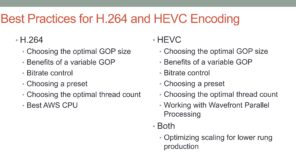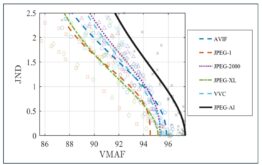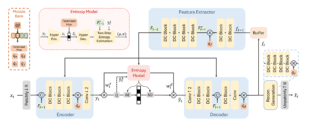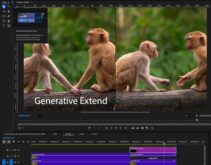Dan Rayburn recently published the video and slides from my NAB Streaming Summit session, where I walked through real-world techniques to optimize x264 and x265 for quality and efficiency. No AI, no codecs from 2030, just practical optimizations that work today. If You’re Still Encoding with x364 and x265EVC—Good You don’t need to jump to AV1 or VVC to get …
Read More »First-Party Data: The “Panacea” for a Cookie-less World? Is Consent Its Achilles’ Heel?
As third-party cookies fade into digital history, first-party data has risen to the top of every marketer’s wish list. Touted as the ultimate solution for targeting, personalization, and measurement in a privacy-centric era, first-party data is often positioned as the “panacea” for the challenges left in the wake of cookie deprecation. But beneath the optimism lies a hard truth: first-party …
Read More »Deep Render AI Codec in Action: FFmpeg Encoding and VLC Playback Demo
I recently tested the Deep Render AI codec and issued a report, which you can read here. The bottom line was that in the tested low-latency use case, the Deep Render AI codec substantially outperformed SVT-AV1 quality-wise and was only slightly behind VVenC. While the codec lacks features like bitrate control that are necessary for most deployments, it offers outstanding integration …
Read More »AV1 vs. VVC Mobile Playback: A Quick and Dirty Test
Streaming Media recently published my article on VVC and AV1, Software Decoding and the Future of Mobile Video. An honest evaluation of the article might observe that while the quality comparisons between SVT-AV1 and VVenC were relatively complete, the article didn’t share any mobile playback performance data. That’s because I couldn’t find any VVC players for testing on either mobile platform. …
Read More »When Metrics Mislead: Evaluating AI-Based Video Codecs Beyond VMAF
Recently, I reviewed the Deep Render AI codec and noticed a substantial disconnect between subjective and objective results. Subjective testing showed Deep Render with a 45 percent BD-Rate advantage over SVT-AV1. VMAF showed just 3 percent. While subjective evaluation has always been the gold standard, this gap forced a more basic question: how accurate are traditional objective metrics when applied …
Read More »Deep Render: An AI Codec That Encodes in FFmpeg, Plays in VLC, and Outperforms SVT-AV1
While many AI-based codecs are still making their first appearance in white papers, often with tortured playback requirements and no working decoder, the Deep Render codec is already encoding in FFmpeg, playing in VLC, and running on the billions of NPU-enabled devices already in the market. Let’s take a step back. I’ve been following the development of the Deep Render …
Read More »Evaluating DCVC-RT: A Real-Time Neural Video Codec That Delivers on Speed and Compression
Background Authors & Affiliations: Zhaoyang Jia and Linfeng Qi (USTC), Bin Li, Jiahao Li, Wenxuan Xie, Houqiang Li, and Yan Lu (Microsoft Research Asia). This project stems from an open-source effort initiated in late 2023, with code available on GitHub. The paper targets a long-standing obstacle for neural video codecs (NVCs): achieving real-time performance without sacrificing compression quality. Existing approaches …
Read More »Google’s Cookie Reversal: While Advertisers Rejoice, Legal Trouble Lurks in the Weeds
Google just kicked the can down the road—again—on killing third-party cookies in Chrome. While much of the advertising world rejoiced at the announcement, privacy professionals and legal teams should be sweating. This isn’t a free pass. It’s a stay of execution. Specifically, in a statement released on April 22, 2025, Anthony Chavez, Vice President of the Privacy Sandbox initiative, stated: …
Read More »HEVC Licensing: Misunderstood, Maligned, and Surprisingly Successful
I’ve been involved in a seemingly never-ending debate that started with the dubious (to me) concept of blaming Brightcove’s recent layoffs on HEVC licensing practices. The three questions involved are: Was HEVC’s licensing structure an aberration or similar to other technologies? Was HEVC a commercial success despite these licensing practices? Why didn’t non-premium content publishers adopt it? I have strong …
Read More »Adobe Updates Premiere Pro for NAB 2025
If you edit using the Adobe Creative Suite, you’ve doubtless heard about the updates released just prior to NAB 2025 (officially the 25.2 release). This article notes the key new features available in my video editor of choice, Adobe Premiere Pro. Generative Extend Generative Extend lets you extend video clips by up to two seconds and audio clips by up …
Read More » Streaming Learning Center Where Streaming Professionals Learn to Excel
Streaming Learning Center Where Streaming Professionals Learn to Excel












